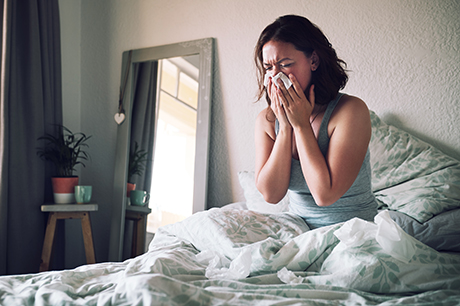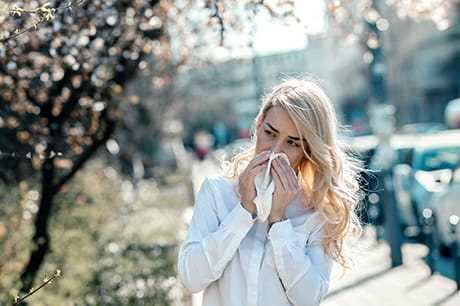What to know about breakthrough COVID infection
What exactly are they and how can you stay safe?
One of the latest developments in COVID-19 news? So-called “breakthrough” infections. Whether it’s a celebrity, your friend or a neighbor who’s sick with COVID — even though they’ve been vaccinated — you may have some questions about the vaccine.
Get the facts straight about breakthrough infections with answers from Dr. Stanley Martin, infectious diseases specialist.
What is breakthrough COVID?
For a COVID-19 infection to be considered a “breakthrough infection,” someone who’s fully vaccinated would need to contract the virus more than 14 days after their final dose.
“This is not uncommon,” says Dr. Martin, “because no vaccine can 100% protect you from a virus. But that doesn’t mean the vaccines aren’t working — or that they aren’t worth getting.”
So does the vaccine protect you from breakthrough COVID?
Yes. When you get the COVID-19 vaccine, it protects you against the severe illness, hospitalization and death the virus can cause. If you get a breakthrough infection, you may feel a little under the weather, but your symptoms will likely be mild.
While breakthrough infections aren’t extremely common for those who are vaccinated, the vaccine offers protection against COVID and its variants. And with the rise of the highly contagious delta variant, it’s more important than ever to get your COVID vaccination.
The biggest factor contributing to breakthrough infections? Low vaccination rates. “With large numbers of people who haven’t received the COVID-19 vaccine yet, the virus is still mutating and spreading, and will continue to do so until more people get the vaccine,” says Dr. Martin.
Remember: Getting vaccinated helps limit the spread of the virus. And the less it can spread, the less chance it has to mutate.
Breakthrough COVID symptoms
If you’re vaccinated and have a breakthrough infection of COVID, your symptoms are likely to be mild. Breakthrough infection symptoms can include:
- Cough
- Headache
- Sore throat
- Muscle aches and pains
- Fever
You can learn COVID-19 symptoms here.
What to do if you have a breakthrough COVID infection
If you’ve been vaccinated but are having symptoms, you should get tested for COVID-19. And if that test comes back positive, stay home for at least 10 days to prevent spreading the virus to others. If your symptoms are severe, call your doctor for advice on treatment.
“It’s important to remember that, even if you feel OK and have been vaccinated, you are still contagious if you contract COVID-19,” says Dr. Martin. “That’s why it’s important to continue to mask, wash your hands and practice social distancing. Especially in areas where there are a lot of people or where infections are on the rise.”
If you haven’t gotten your vaccine yet, it’s easy to schedule your vaccine appointment today.
“And this year, getting your flu vaccine is just as important as getting your COVID-19 vaccine,” says Dr. Martin. Keep an eye out for flu vaccine availability in your area.
Next steps:
What to know about the COVID-19 delta variant
Schedule your COVID-19 vaccine appointment






